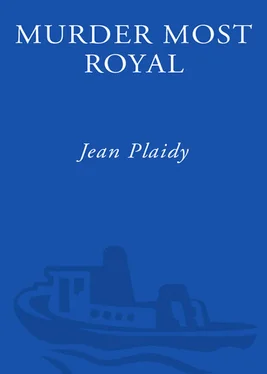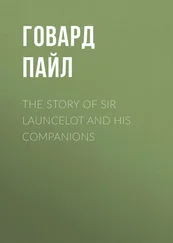Jean Plaidy - Murder Most Royal - The Story of Anne Boleyn and Catherine Howard
Здесь есть возможность читать онлайн «Jean Plaidy - Murder Most Royal - The Story of Anne Boleyn and Catherine Howard» весь текст электронной книги совершенно бесплатно (целиком полную версию без сокращений). В некоторых случаях можно слушать аудио, скачать через торрент в формате fb2 и присутствует краткое содержание. Жанр: Старинная литература, на русском языке. Описание произведения, (предисловие) а так же отзывы посетителей доступны на портале библиотеки ЛибКат.
- Название:Murder Most Royal: The Story of Anne Boleyn and Catherine Howard
- Автор:
- Жанр:
- Год:неизвестен
- ISBN:нет данных
- Рейтинг книги:3 / 5. Голосов: 1
-
Избранное:Добавить в избранное
- Отзывы:
-
Ваша оценка:
- 60
- 1
- 2
- 3
- 4
- 5
Murder Most Royal: The Story of Anne Boleyn and Catherine Howard: краткое содержание, описание и аннотация
Предлагаем к чтению аннотацию, описание, краткое содержание или предисловие (зависит от того, что написал сам автор книги «Murder Most Royal: The Story of Anne Boleyn and Catherine Howard»). Если вы не нашли необходимую информацию о книге — напишите в комментариях, мы постараемся отыскать её.
Murder Most Royal: The Story of Anne Boleyn and Catherine Howard — читать онлайн бесплатно полную книгу (весь текст) целиком
Ниже представлен текст книги, разбитый по страницам. Система сохранения места последней прочитанной страницы, позволяет с удобством читать онлайн бесплатно книгу «Murder Most Royal: The Story of Anne Boleyn and Catherine Howard», без необходимости каждый раз заново искать на чём Вы остановились. Поставьте закладку, и сможете в любой момент перейти на страницу, на которой закончили чтение.
Интервал:
Закладка:
“Indeed I do.”
Her eyes were wistful, catching his mood. They were both thinking of Hever and Allington in quiet Kent.
“I would I were there,” he said, for such was the accord between them that they sometimes read the other’s thoughts.
“The gardens at Hever will be beautiful now.”
“And at Allington, Anne.”
“Yes,” she said, “at Allington also.”
He moved closer.
“Anne, what if we were to leave the court...together? What if we were to go to Allington and stay there...?”
“You to talk thus,” she said, “and you married to a wife!”
“Ah!” His voice was melancholy. “Anne, dost remember childhood days at Hever?”
“Well,” she answered. “You locked me in the dungeons once, and I declare I all but died of fright. A cruel boy you were, Thomas.”
“I! Cruel...and to you! Never! I swear I was ever tender. Anne, why did we not know then that happiness for you and me lay in the one place?”
“I suppose, Thomas, that when we are young we are so unwise. It is experience that teaches us the great lessons of life. How sad that, in gaining experience, we so often lose what we would most cherish!”
He would have taken her hand, but she held him off.
“Methinks, we should return,” she said.
“Now...when we are beginning to understand each other!”
“You, having married a wife...” she began.
“And therein being most unhappy,” he interrupted; but she would have none of his interruptions.
“You are in no position to speak in this wise, Thomas.”
“Anne, must we then say a long farewell to happiness?”
“If happiness would lie in marriage between us two, then we must.”
“You would condemn me to a life of melancholy.”
“You condemned yourself to that, not I!”
“I was very young.”
“You were, I mind well, a most precocious boy.”
He smiled back sadly over his youth. A boy of great precocity, they had sent him to Cambridge when he was twelve, and at seventeen had married him to Elizabeth Brooke, who was considered a good match for him, being daughter of Lord Cobham.
“Why,” he said, “do our parents, thinking to do well for us, marry us to their choice which may well not be our own? Why is the right sort of marriage so often the unhappy one?”
Anne said: “You are spineless, all of you!” And her eyes flashed as her thoughts went to Percy. Percy she had loved and lost, for Percy was but a leaf wafted by the winds. The wicked Cardinal whom she hated now as she had ever done, had said, “It shall not be!” And meekly Percy had acquiesced. Now he would complain that life had denied him happiness, forgetting he had not made any great effort to attain it. And Wyatt, whom she could so easily love, complained in much the same manner. They obeyed their parents; they married, not where they listed, but entered into any match that was found for them; then they bitterly complained!
“I would never be forced!” she said. “I would choose my way, and, God help me, whatever I might encounter I would not complain.”
“Ah! Why did I not know then that my happiness was with Anne Boleyn!”
She softened. “But how should you know it...and you but seventeen, and I even less?”
“And,” he said, “most willing to engage yourself to Percy!”
“That!” She flushed, remembering afresh the insults of the Cardinal. “That...Ah! That failed just as your marriage has failed, Thomas, though differently. Perchance I am glad it failed, for I never could abide a chicken-livered man!”
Now he was suddenly gay, throwing aside his melancholy; he would read to her some verses he had written, for they were of her and for her, and it was meet that she should hear them first.
So she closed her eyes and listened and thrilled to his poetry, and was sad thinking of how she might have loved him. And there in the pond garden it occurred to her that life had shown her little kindness in her love for men. Percy she had lost after a brief glimpse into a happy future they were to have shared; Wyatt she had lost before ever she could hope to have him.
What did the future hold for her? she wondered. Was she going on in this melancholy way, loving but living alone? It was unsatisfactory.
Thomas finished reading and put the poem into his pocket, his face flushed with appreciation for his work. He has his poetry, she mused, and what have I? Yes, the rest of us write a little; it is to us a pleasant recreation, it means not to us what it does to Wyatt. He has that, and it is much. But what have I?
Wyatt leaned forward; he said earnestly: “I shall remember this day forever, for in it you all but said you loved me!”
“There are times,” she said, “when I fear that love is not for me.”
“Ah, Anne! You are gloomy today. Whom should love be for, if not for those who are most worthy to receive it! Be of good cheer, Anne! Life is not all sadness. Who knows but that one day you and I may be together!”
She shook her head. “I have a melancholy feeling, Thomas.”
“Bah! You and melancholy mate not well together.” He leaped to his feet and held out his hands to her; she put hers in his, and he helped her to rise. He refused to release her hands; his lips were close to hers. She felt herself drawn towards him, but it seemed to her that her sister was between them...Mary, lightsome, wanton, laughing, leering. She drew away coldly. He released her hands at once, and they fell to her side; but his had touched a jeweled tablet she wore and which hung from her pocket on a golden chain. He took it and held it up, laughing. “A memento, Anne, of this afternoon when you all but said you loved me!”
“Give it back!” she demanded.
“Not I! I shall keep it forever, and when I feel most melancholy I shall take it out and look at it, and remember that on the afternoon I stole it you all but said you loved me.”
“This is foolishness,” she said. “I do not wish to lose that tablet.”
“Alas then, Anne! For lost it you have. It is a pleasing trinket—it fills me with hope. When I feel most sad I shall look at it, for then I shall tell myself I have something to live for.”
“Thomas, I beg of you...”
She would have snatched it, but he had stepped backwards and now was laughing.
“Never will I give it up, Anne. You would have to steal it back.”
She moved towards him. He ran, she after him; and running across the enclosed pond garden, trying to retrieve that which he had stolen, was poignantly reminiscent of happy childhood days at Allington and Hever.
The Cardinal rode through the crowds, passing ceremoniously over London Bridge and out of the capital on his way to France, whither he had been bidden to go by the King. Great numbers of his attendants went before him and followed after him; there were gentlemen in black velvet with gold chains about their necks, and with them their servants in their tawny livery. The Cardinal himself rode on a mule whose trappings were of crimson velvet, and his stirrups were of copper and gold. Before him were borne his two crosses of silver, two pillars of silver, the Great Seal of England, his Cardinal’s hat.
The people regarded him sullenly, for it was now whispered, even beyond the court, of that which had come to be known as the King’s Secret Matter; and the people blamed the Cardinal, whispering that he had put these ideas into the King’s head. Whither went he now, but to France? Mayhap he would find a new wife to replace the King’s lawful one, their own beloved Queen Katharine. They found new loyalty towards their quiet Queen, for they pictured her as a poor, wronged woman, and the London crowd was a sentimental crowd ever ready to support the wronged.
In the crowd was whispered the little ditty which malicious Skelton had written, and which the public had taken up, liking its simple implication, liking its cutting allusions to a Cardinal who kept state like a king.
Читать дальшеИнтервал:
Закладка:
Похожие книги на «Murder Most Royal: The Story of Anne Boleyn and Catherine Howard»
Представляем Вашему вниманию похожие книги на «Murder Most Royal: The Story of Anne Boleyn and Catherine Howard» списком для выбора. Мы отобрали схожую по названию и смыслу литературу в надежде предоставить читателям больше вариантов отыскать новые, интересные, ещё непрочитанные произведения.
Обсуждение, отзывы о книге «Murder Most Royal: The Story of Anne Boleyn and Catherine Howard» и просто собственные мнения читателей. Оставьте ваши комментарии, напишите, что Вы думаете о произведении, его смысле или главных героях. Укажите что конкретно понравилось, а что нет, и почему Вы так считаете.












